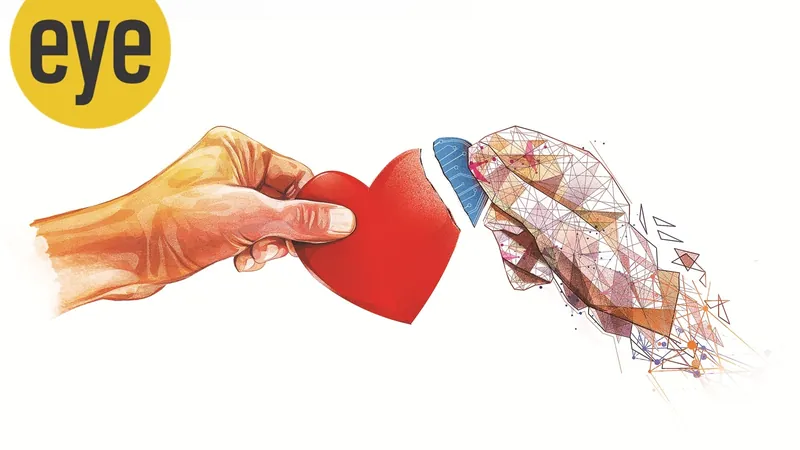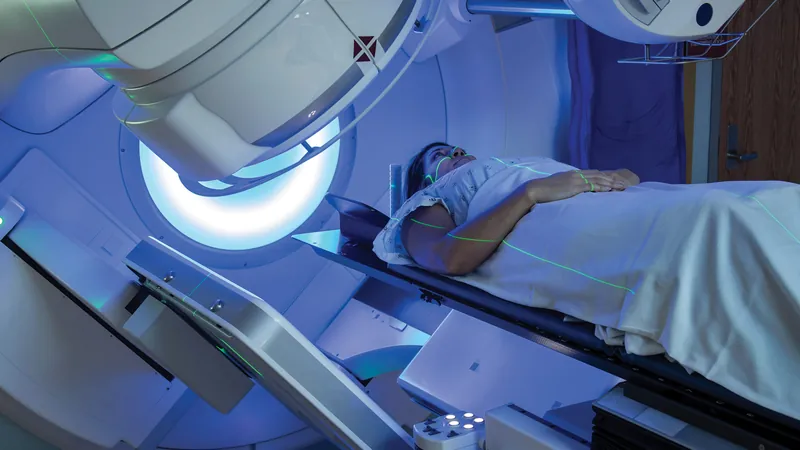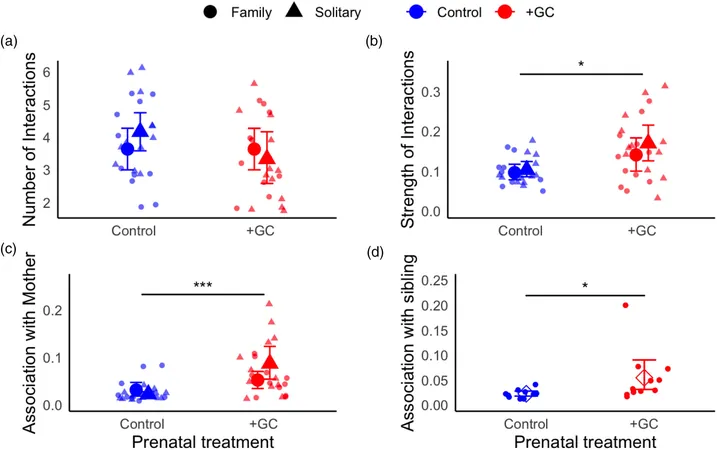
Why AI Is Becoming Your New Relationship Guru
2025-07-13
Author: Ming
AI: The Unexpected Relationship Advisor
In the heart of Chennai, a couple in their late 20s faced a tumultuous moment—an argument that escalated to physicality. Rana*, a content writer, explains that their relationship had been rocky for some time, and things took a turn that left them both shaken.
Determined to heal, they embarked on individual therapy, meeting with professionals weekly. But Rana found himself in a predicament one morning when his wife failed to greet him after a sleepless night. Feeling anxious and on edge, he turned to ChatGPT, which helped him put his feelings into perspective. After calming down, he prepared tea and approached the situation gently, leading to a fruitful conversation.
AI Tools for Emotional Support
While ChatGPT is often recognized for its academic capabilities, it’s gaining traction as an emotional support tool. Couples like Rana are part of a rising demographic that turns to sophisticated AI systems for guidance in navigating interpersonal issues.
Dedicated platforms like Wysa, launched in 2016, have amassed a user base of over 6.5 million across 95 countries, primarily consisting of young individuals. Jo Aggarwal, Wysa's founder, reveals that users frequently seek help for anxiety, sleep disturbances, and relationship troubles.
The Impact of AI on Mental Health
Srishti Srivastava, who developed the AI therapy app Healo, identifies that a significant 44% of inquiries pertain to relationships. Users often grapple with compatibility questions, communication issues, and modern dating dilemmas like ghosting and breadcrumbing. Healo currently serves 250,000 users mainly from India, catering to a demographic that's young and diverse.
Accessible, Non-Judgmental, and Immediate
A study by The University of Law (ULaw) disclosed that 66% of 25- to 34-year-olds would rather speak to AI about their feelings than to someone close. The desire for accessibility, confidentiality, and the elimination of judgment draws many to AI platforms.
Shuchi Gupta, a video editor, found herself seeking help from ChatGPT after being ghosted in a relationship. Overwhelmed and without the means for therapy, she turned her past conversations into dialogue with the AI. Surprised by the depth of its responses, she discovered a tool that offered nuanced insights.
Navigating Difficult Emotions with AI
AI tools are stepping in to fill a void in emotional vocabulary, helping users articulate complex feelings. Srivastava explains that many individuals lack the language to describe their experiences, and AI aids in defining these feelings.
The AI Therapy Dilemma
Despite the positive aspects of AI in emotional support, therapists caution about the potential downsides of relying too heavily on these technologies. Shama Shah, a Bengaluru-based psychotherapist, notes that clients sometimes enter therapy sessions armed with self-diagnoses from ChatGPT, which can create barriers to genuine therapeutic exploration.
AI's Limitations and Ethical Concerns
Concerns exist about AI's capacity to misinterpret sensitive situations. Recent studies from Stanford highlight how AI can fail to recognize veiled references to suicidal thoughts, resulting in inadequate responses that could lead to harmful outcomes.
Moreover, the anonymity of AI interactions may be illusory, as these platforms are for-profit and collect data, raising privacy concerns.
Real Relationships with AI: A New Reality?
Bhaskar Mukherjee, a psychiatrist, has noticed patients forming emotional attachments to AI platforms, which some view as practice for real-life connections. Despite warnings from professionals about the potential dangers, the trend of AI as a low-risk support system continues to grow.
The Future of AI in Therapy
Although the rise of AI tools raises questions about their efficacy and safety, they represent a necessary stopgap amid a mental health professional shortage. The urgent need for accessible mental health care has prompted calls for collaboration between AI developers and mental health professionals to create safe, supportive tools.
As AI becomes an integral part of emotional well-being, it remains crucial that its development adheres to ethical standards that prioritize user safety and mental health.
(* Name changed for privacy)




 Brasil (PT)
Brasil (PT)
 Canada (EN)
Canada (EN)
 Chile (ES)
Chile (ES)
 Česko (CS)
Česko (CS)
 대한민국 (KO)
대한민국 (KO)
 España (ES)
España (ES)
 France (FR)
France (FR)
 Hong Kong (EN)
Hong Kong (EN)
 Italia (IT)
Italia (IT)
 日本 (JA)
日本 (JA)
 Magyarország (HU)
Magyarország (HU)
 Norge (NO)
Norge (NO)
 Polska (PL)
Polska (PL)
 Schweiz (DE)
Schweiz (DE)
 Singapore (EN)
Singapore (EN)
 Sverige (SV)
Sverige (SV)
 Suomi (FI)
Suomi (FI)
 Türkiye (TR)
Türkiye (TR)
 الإمارات العربية المتحدة (AR)
الإمارات العربية المتحدة (AR)